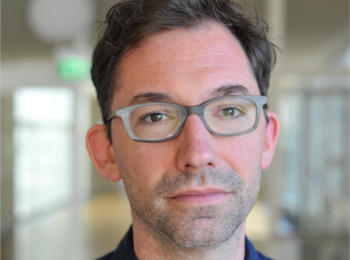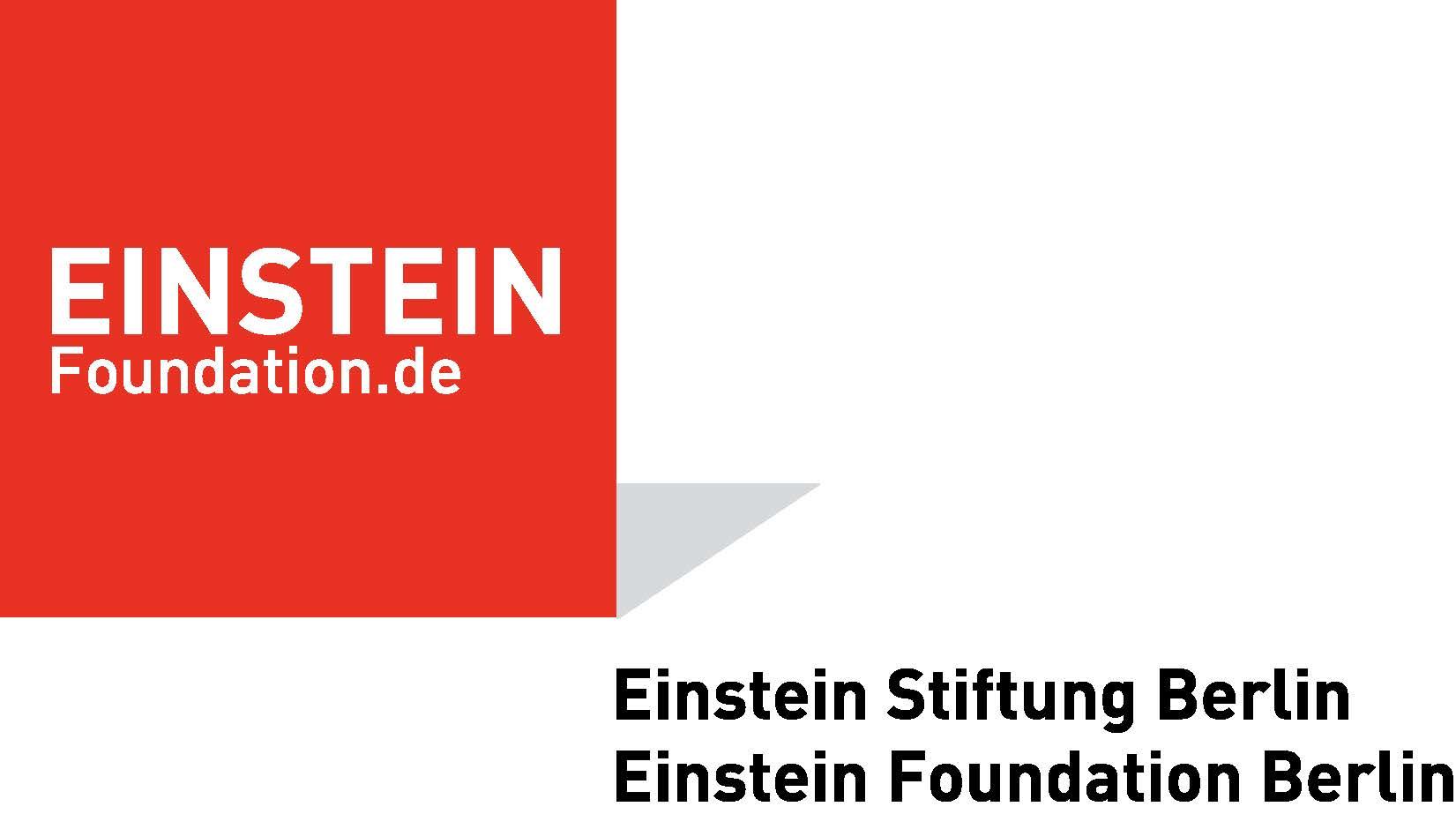Prof. Dr. Michael Goebel

Friedrich-Meinecke-Institut / Frankreich-Zentrum
Einstein Professor of Global History / Co-Director Frankreich-Zentrum / Deputy Director Friedrich-Meinecke-Institut / Bafög Coordinator
Global History, Digital History, Urban History, History of Capitalism, Nationalism
Neuere Geschichte/Global History
Raum A351
14195 Berlin
Sprechstunde
Please register for Office Hours here.
Bafög: If you need a confirmation and signature on "Formblatt 5," please prepare all the documentation you feel is needed in order to confirm what you want confirmed, pre-complete all the forms, so they only require a signature, then send it to Sarah Grünewald at sarahbonig01@zedat.fu-berlin.de.
Michael Goebel is the Einstein Professor in Global History, the Co-Director of the Frankreich-Zentrum, and the Deputy Director of the Friedrich-Meinecke-Institut. Prior to his arrival at Freie Universität Berlin in 2021, he was the Pierre du Bois Chair “Europe and the World” at the Geneva Graduate Institute. Since the completion of his Ph.D. at University College London in 2006, he also held positions at the Institute of Historical Research, London, the European University Institute, Freie Universität Berlin, and Harvard University.
Michael Goebel is the Principal Investigator of the SNSF-funded research project Patchwork Cities, which investigates the history of ethnic segregation in port cities. A podcast about this project can be found here. He is a member of the Arbeitskreis für Moderne Sozialgeschichte, of the board of directors of the Global Urban History Project, and of the advisory board of the ZEIT Foundation's program Beyond Borders. Together with Tracy Neumann and Joseph Prestel, he is an editor of the Cambridge Elements in Global Urban History.
Outreach and Public Lectures
The French translation of Anti-Imperial Metropolis has formed the basis of a French TV documentary, aired by France 5 in 2020, which can be watched here.
A short video interview about the book can be viewed here, and a longer podcast interview is available here.
In August 2021, the Pierre du Bois Conference took place at the Graduate Institute Geneva, concerning the global history of nationalism. Most of the roundtables are viewable on the Graduate Institute's Youtube channel, for example here.
A podcast about the SNSF-project Patchwork Cities is available here. Finally the launch event of the Cambridge Elements in Global Urban History can be seen here.
Supervisor
Michael Goebel supervises B.A. and M.A. theses, as well as Ph.D. dissertations.
For office hourse, please make an appointment here.
Courses Taught
Summer Semester 2023:
Demography, Statistics, and Mapping in Global History (M.A.)
History of Capitalism in the Americas (M.A., co-taught)
Serielle Quellen und historische Kartierung (M.A.)
Berlin Global History Colloquium (co-taught)
Winter Semester 2022/23:
Theorie, Methode und Geschichte der Geschichtswissenschaft (B.A.)
Approaches to Global History A (M.A.)
Approaches to Global History B (M.A.)
Lecture Series: The World in Global History (M.A., co-taught)
Theorie, Methode und Geschichte der Geschichtswissenschaft (B.A.)
Berlin Global History Colloquium (co-taught)
Summer Semester 2022:
Global Cities in History (M.A.)
A History of Afro-Latin America, 18th-20th Centuries (M.A.)
Ausgrenzung und Segregation im städtischen Raum (B.A.)
Nation, Nationalismus und Nationalstaat im 19. und 20. Jhd. (B.A.)
Berlin Global History Colloquium (co-taught)
Winter Semester 2021/22:
Theorie, Methode und Geschichte der Geschichtswissenschaft (B.A.)
Approaches to Global History B (M.A.)
Approaches to Global History C (M.A.)
Michael Goebel's main research interests lie in the histories of nationalism, of migration, and of cities in the nineteenth and twentieth centuries. At present he is especially interested in the global history of urban real estate and how it intersects with histories of capitalism, race, and inequality.
His first book (2011), based on his Ph.D. at University College London (2006), concerned the relationship between historiography and nationalism in twentieth-century Argentina. His second book (2015), which at the same time was his Habilitation at Freie Universität Berlin (2014), but was written mainly during stays at the European University Institute (2008–10) and Harvard University (2012–13), explored the question of why and how interwar Paris became such an important site for the global spread of anticolonialism. The book won the Jerry Bentley Prize in World History in 2016. A French translation appeared in 2017.
More recently, though piqued by an older article (2009) about the history of European immigration to Uruguay, he has grown interested in the global history of the relationship between ethnicity and urban space. He is the Principal Investigator of Patchwork Cities, a four-year project about the history of segregation in port cities, which is funded by the Swiss National Science Foundation. More broadly he has been invested for several years in establishing the field of global urban history, first through the Global Urban History Blog, then through the Global Urban History Project, and more recently as a co-editor of the Cambridge Elements in Global Urban History.
He is currently writing two books. The first, commissioned by Cambridge University Press, charts the rise and fall of European hegemony in global urban history during the nineteenth and twentieth centuries. Though a monograph-length survey, the book at the same time ponders the origins and implications of Europe's outsized, and increasingly outdated, impact on theory building in urban studies and urban history. The second is a micro-history of urban space and real estate in nineteenth-century Buenos Aires. Charting the Europeanization of homeownership in the city, the book will be an Atlantic history of inequality and urban capitalism in the nineteenth century.
A selection of his publications can be found here.
Selected Publications
MonographsAn Urban History of the Modern World (Cambridge University Press; under contract for 2026).
Anti-Imperial Metropolis: Interwar Paris and the Seeds of Third World Nationalism (New York and Cambridge: Cambridge University Press, 2016).
Winner of the Jerry Bentley Prize in World History, 2016.
Reviews: American Historical Review, Essays in History, Genèses, Global Histories, Global Intellectual History, HSozKult, Journal of Modern History, Journal of the History of Ideas, International Newsletter of Communist Studies, New Left Review, Relações Internacionais, Sehepunkte.
Podcast Interview on New Books in History
Paris, capitale du tiers monde (Paris: La Découverte, 2017).
(Translation of Anti-Imperial Metropolis by Pauline Stockman)
Reviews: Agone, En attendant Nadeau, Histoire engagée, Indomémoires, Le matin d'Algérie, Le Monde, Le monde diplomatique, Le mouvement social, Quartiers libres, Revue d'histoire urbaine.
A French TV documentary was made on the basis of this book, aired in 2020 by France 5.
Overlapping Geographies of Belonging: Migrations, Regions, and Nations in the Western South Atlantic (Washington DC: American Historical Association, 2013).
Argentina's Partisan Past: Nationalism and the Politics of History (Liverpool: Liverpool University Press, 2011).
Reviews: The Americas, Hispanic American Historical Review, HSozKult, Journal of Latin American Studies, Nations and Nationalism.
La Argentina partida: nacionalismos y políticas de la historia (Buenos Aires: Prometeo, 2013).
(Translation of Argentina's Partisan Past)
As Editor(with Christian Jones, Yorim Spoelder, and Xinge Zhai), "Bridgeheads and Breakwaters: The Socio-Environmental History of Port Cities After the Global Turn." Forthcoming in Urban History.
(with Lila Caimari), Dossier on the fortieth anniversary of Benedict Anderson's Imagined Communities, special issue of Prismas: revista de historia intelectual, no. 27 (2023): 143–218.
(with Nicola Foote), Immigration and National Identities in Latin America (Gainesville: University Press of Florida, 2014).
Journal Articles (Selection)(with Xinge Zhai) "The Social Environments of Port Cities in the Longue Durée." Forthcoming in Urban History.
(with Lila Caimari), "Vidas y sobrevidas de Comunidades imaginadas." Prismas: revista de historia intelectual, no. 27 (2023): 145–154.
"Rethinking Nationalism." The American Historical Review 127, no. 1 (2022): 311–313.
“Globalization and Nationalism in Latin America, c.1750–1950.” New Global Studies 3 (2009).
Articles in Edited Books (Selection)"Cities of Movement and Segregation," in: The Oxford Handbook on Global Urban History, ed. Mariana Dantas, Carl H. Nightingale, and Alexia Yates (Oxford and New York: Oxford University Press; under contract).
"Colonialism and Cities," in: The Cambridge History of Colonialism and Decolonization, ed. Christopher J. Lee and Kris Manjapra (Cambridge and New York: Cambridge University Press; under contract).
"The National and the Colonial in the Anticolonial Transnational," in: The Anticolonial Transnational: Imaginaries, Mobilities, and Networks in the Struggle Against Empire, ed. Erez Manela and Heather Streets-Salter (Cambridge and New York: Cambridge University Press, 2023): 292–305.
"Anticolonialism and Anti-Imperialism," in: The Routledge History of the Interwar World, ed. Heidi Tworek und Andrew Denning (London: Routledge, 2023): 569–582.
“Immigrant Cities Since the Late Nineteenth Century,” in: The Cambridge History of Global Migrations, vol. 2, ed. Marcelo Borges and Madeline Hsu (Cambridge and New York: Cambridge University Press, 2023): 481–499.
"Paris: capitale de l'anti-impérialisme," in: Colonisations. Notre histoire, ed. Pierre Singaravélou et.al. (Paris: Seuil, 2023): 163–165.
“Anticolonialism and Nationalism in the French Empire,” in: The Cambridge History of Nationhood and Nationalism, vol. 1, ed. Matthew D’Auria, Cathie Carmichael, and Aviel Roshwald (Cambridge and New York: Cambridge University Press, 2022): 376–398.
"Migration and Nation in Latin America," in: The Routledge Handbook of Latin American Migration, ed. Xóchitl Bada, Jorge Durand, Andreas E. Feldmann, and Stephanie Schütze (London: Routledge), 81–92.
“Forging a Proto-Third World? Latin America and the League against Imperialism,” in: The League against Imperialism: Lives and Afterlives, ed. Michele Louro, Carolien Stolte, and Heather Streets-Salter (Leiden: Leiden University Press, 2020), 53–78.
“Una sucursal francesa de la Reforma Universitaria: jóvenes latinoamericanos y antiimperialismo en el París de entreguerras,” in: Los viajes latinoamericanos de la Reforma Universitaria, ed. Martín Bergel (Rosario: Hya Ediciones, 2018), 177–200.
“Settler Colonialism in Postcolonial Latin America,” in: The Routledge Handbook of the Global History of Settler Colonialism, ed. Edward Cavanagh and Lorenzo Veracini (London: Routledge, 2017), 139– 151.
“Fighting and Working in the Metropole: The Nationalizing Effects of WWI Throughout the French Empire, 1916–1930,” in: The World During the First World War, ed. Helmut Bley (Essen: Klartext, 2014), 99–109.
“Reconceptualizing Diasporas and National Identities in Latin America and the Caribbean, 1850– 1950,” in: Immigration and National Identities in Latin America, ed. Nicola Foote and Michael Goebel (Gainesville: University Press of Florida: 2014), 1–27.
“Italian Fascism and Diasporic Nationalisms in Argentina, Brazil, and Uruguay,” in: Immigration and National Identities in Latin America, ed. Nicola Foote and Michael Goebel (Gainesville: University Press of Florida: 2014), 235–255.















